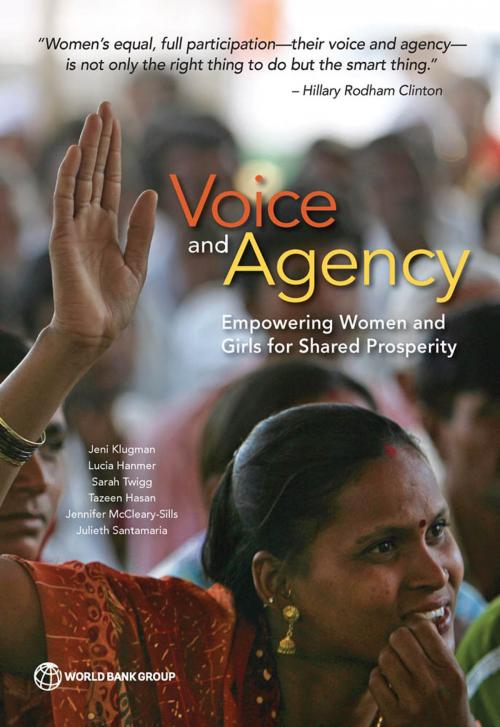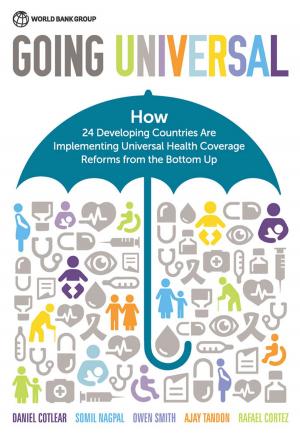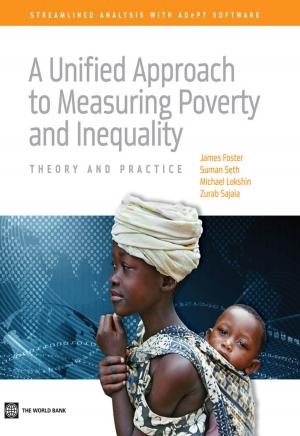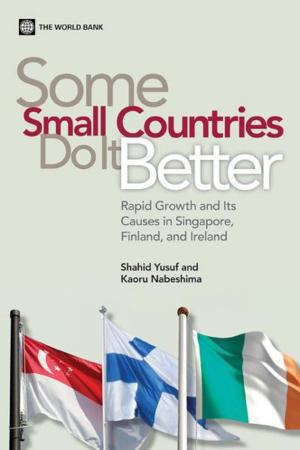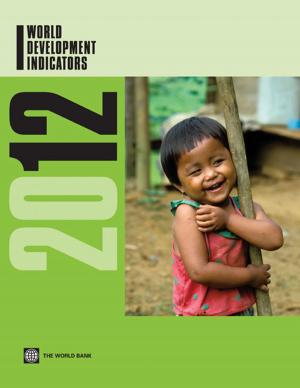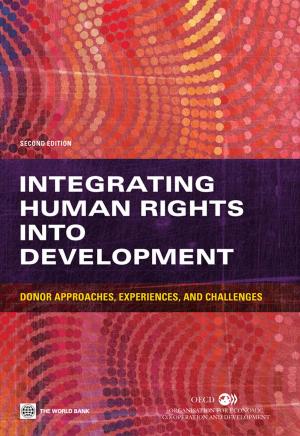Voice and Agency
Empowering Women and Girls for Shared Prosperity
Business & Finance, Economics, Economic Development, Nonfiction, Social & Cultural Studies, Social Science, Gender Studies, Women&| Author: | Jeni Klugman, Lucia Hanmer, Sarah Twigg, Tazeen Hasan, Jennifer McCleary-Sills, Julieth Santamaria | ISBN: | 9781464803604 |
| Publisher: | World Bank Publications | Publication: | September 29, 2014 |
| Imprint: | Language: | English |
| Author: | Jeni Klugman, Lucia Hanmer, Sarah Twigg, Tazeen Hasan, Jennifer McCleary-Sills, Julieth Santamaria |
| ISBN: | 9781464803604 |
| Publisher: | World Bank Publications |
| Publication: | September 29, 2014 |
| Imprint: | |
| Language: | English |
Despite recent advances in important aspects of the lives of girls and women, pervasive challenges remain. These challenges reflect widespread deprivations and constraints and include epidemic levels of gender-based violence and discriminatory laws and norms that prevent women from owning property, being educated, and making meaningful decisions about their own lives--such as whether and when to marry or have children. These often violate their most basic rights and are magnified and multiplied by poverty and lack of education. This groundbreaking book distills vast data and hundreds of studies to shed new light on deprivations and constraints facing the voice and agency of women and girls worldwide, and on the associated costs for individuals, families, communities, and global development. The volume presents major new findings about the patterns of constraints and overlapping deprivations and focuses on several areas key to womens empowerment: freedom from violence, sexual and reproductive health and rights, ownership of land and housing, and voice and collective action. It highlights promising reforms and interventions from around the world and lays out an urgent agenda for governments, civil society, development agencies, and other stakeholders, including a call for greater investment in data and knowledge to benchmark progress.
Despite recent advances in important aspects of the lives of girls and women, pervasive challenges remain. These challenges reflect widespread deprivations and constraints and include epidemic levels of gender-based violence and discriminatory laws and norms that prevent women from owning property, being educated, and making meaningful decisions about their own lives--such as whether and when to marry or have children. These often violate their most basic rights and are magnified and multiplied by poverty and lack of education. This groundbreaking book distills vast data and hundreds of studies to shed new light on deprivations and constraints facing the voice and agency of women and girls worldwide, and on the associated costs for individuals, families, communities, and global development. The volume presents major new findings about the patterns of constraints and overlapping deprivations and focuses on several areas key to womens empowerment: freedom from violence, sexual and reproductive health and rights, ownership of land and housing, and voice and collective action. It highlights promising reforms and interventions from around the world and lays out an urgent agenda for governments, civil society, development agencies, and other stakeholders, including a call for greater investment in data and knowledge to benchmark progress.
